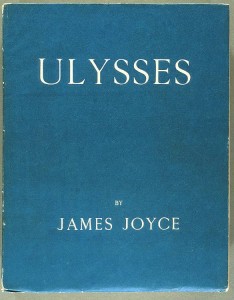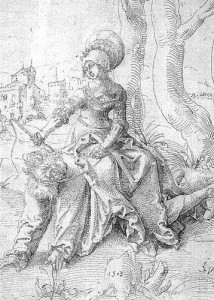
“Even the allwisest stagyrite was bitted, bridled and mounted by a light of love.” 15.111-12
So says Stephen Dedalus, having an anti-feminist moment on his way to visit prostitutes. In Ulysses Annotated, Gifford links the line to the above work of art, “Phyllis and Aristotle” by Hans Baldung, from the Louvre.
After the dense and thorny chapter 14, Oxen of the Sun, we are given a breather, in both white space on the page, and humor. Alas, I’m feeling rather glum and beaten down by Ulysses. Unlike the many other recent readalongs I’ve done–Bleak House, David Copperfield, Moby Dick, Sandman, and Odyssey–Ulysses continues to confound. With other books, I’ve thought, wow, there’s a lot of great stuff in here, and it’s not as intimidating as I’d feared.
I’m not sure if I’ve disclosed this before, but in literature, I’m basically self educated. I had a typical low-quality US education through high school, required to read not that many classics, and skiving off reading several of those. I was immature and my teachers gave me As because I was clever and they were easily fooled, and I was more interested in the works of Stephen King, Anne McCaffrey, and Kathleen Woodiwiss at the time.
In college I majored in marketing, and took one English class in which we read (and I actually DID read) only 3 books: The Iliad, War and Peace, and Hemingway’s In Our Time. After having my soul sucked from working in marketing for several years, I went to graduate school in religion, and finagled a Shakespeare class out of that but not much more in literature. So I am far from an expert in literature, just a very curious amateur.
Ulysses is at least as intimidating as I’d feared, not least because Joyce was being wilfully abstruse and trying to push the envelope of the novel. While I can admire the ambition, and agree that he succeeded, this doesn’t make the novel much of a pleasure to read at least on this first time through.
In my attempts as moderator of this readalong, I’ve explored different things to try to better understand this book. I’m reading the notes in the exhaustive and exhausting Ulysses Annotated by Don Gifford. I am reading Schmoop.com’s summaries and analyses of the chapters. I have gotten both the original and updated version of Harry Blamires’ Bloomsday Book from the library. A work by Joseph Campbell looked promising, but was only mine for a few weeks in which I was too busy to appreciate it.
When I came across a title called Virgin and Veteran readings of Ulysses by Margaret Norris I was excited, because I had begun to wish for notes and references geared to me as a first-time reader. Alas, this is not that book. It is written in what I refer to as high academ-ese, and is a book about the pedagogy of Ulysses and how to teach it. As I tried to wade through the introduction, though, two things caught my notice.
Ulysses can arguably be “read” by a first-time or virgin reader, but can be fully “understood” only by a veteran reader who brings knowledge of the whole work, including the ending, to any part of it. (p2)
Norris notes that many guides to Ulysses, in explaining certain passages, give spoilers from the veteran readers. For example, most notes talk about Bloom’s Jewishness before it is made explicit or even implicit in the text.
The most notable example for me was when schmoop noted that Poldy and Molly hadn’t had sex for ten years. Yet the text only said something that alluded to this, which is gradually explained over the rest of the book.
Which raises (NB, does not “beg,” which is so often misused) the questions: do the notes “spoil” in multiple meanings of the word, the experience of reading this book for the first time? Is reading Ulysses the first time rather like having sex for the first time: awkward, bewildering, embarrassing, sometimes painful, fleetingly delightful, but seriously, it gets GREAT the more you do it? Is there a point to reading Ulysses one time only?
On that cheerful note, let’s talk about the first part of 15: Circe. Overall, 15 is a hallucinatory play that alternates between fantasy and reality. I was reminded both of Kafka and of A Christmas Story. Then I watched last night’s Mad Men; that series is full of imaginary episodes comes to life, sometimes with no clear mark of what is read and what is not. Schmoop mentions Mel Brooks movies, and I’m sure there are loads more works of art we can think of that alternate and blur fantasy and reality. The stopping point I chose, at about line 1955, is just as Bloom is coming out of an imagined Alleluia chorus and brought into reality by Zoe, a prostitute, (I will not use “whore” to refer to these women as the notes often do. Prostitute is a job; whore is a suitcase of value judgments.) who comments:
“Talk away till You’re black in the face.”
The gist of it, though, and I’m trying to stick to just the facts, ma’am, and not include any spoiler-y notes, is that Bloom is following Stephen and Lynch into Mabbot Street and nighttown, a bad area. Bloom wants to get Stephen before he spends his money and body and inner self with prostitutes. Bloom’s stream of consciousness comes to life, though, and we see his ego and insecurities played out, as well as some of his past.
The lemon soap gets its own line, the shriveled potato is mistaken for a sign of STD, and Bloom seems to have a very confused, or defiant, sense of what is kosher. Camels make an appearance, and they’re not kosher, as they have cloven hooves.
What did everyone else think? Stay with me; we can get through this. I will climb out of my slough of despond.
Your assignment for next week, should you choose to accept it, is to read to this line, which signals another shift from dream to reality:
“(The figure of Bella Cohen stands before him.)”
It’s on page 554 of my edition, the Vintage. In the online Columbia, it’s 15.3474
We’ll meet here next week to chat about the middle of chapter 15 to that point. The schedule for the rest:
5/11/15 discuss and tweet on 15, lines 1956 to 3474
5/18/15 discuss and tweet 3475-end, and all of section 15
5/25/15 discuss and tweet section 16
(extra week to read the longer section 17)
6/8/15 read then discuss and tweet section 17
6/15/15 discuss and tweet section 18
6/16/15 Bloomsday!
Past posts:
Week 1: books 1 and 2
Week 2: books 3 and 4
Week 3: books 5, 6
Week 4: book 7
Week 5: book 8
Week 6: book 9
Week 7: book 10
Week 8: book 11
Week 9: book 12
Week 10: book 13
Week 11: book 14
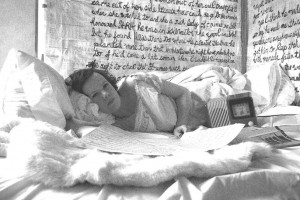

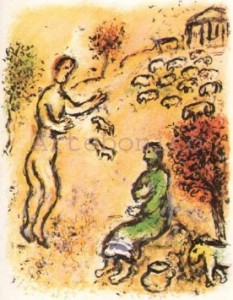

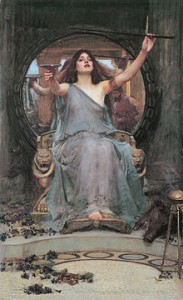
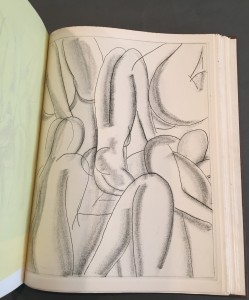

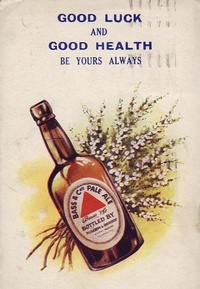
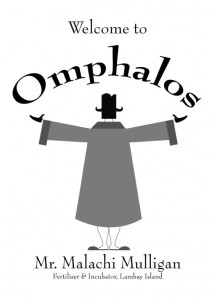

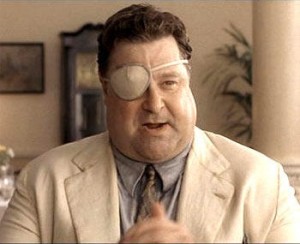
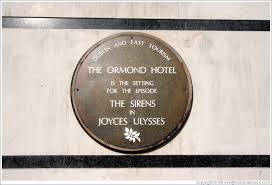
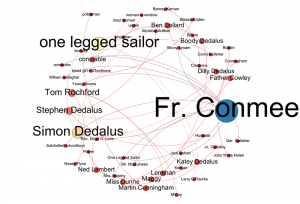
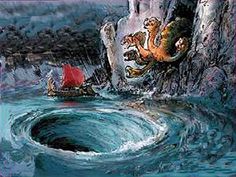


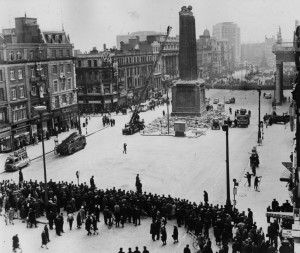
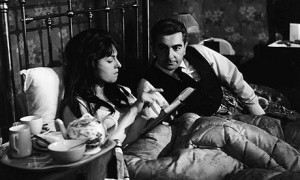
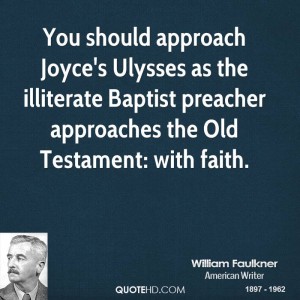
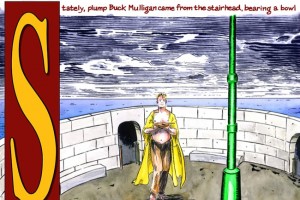 from
from 